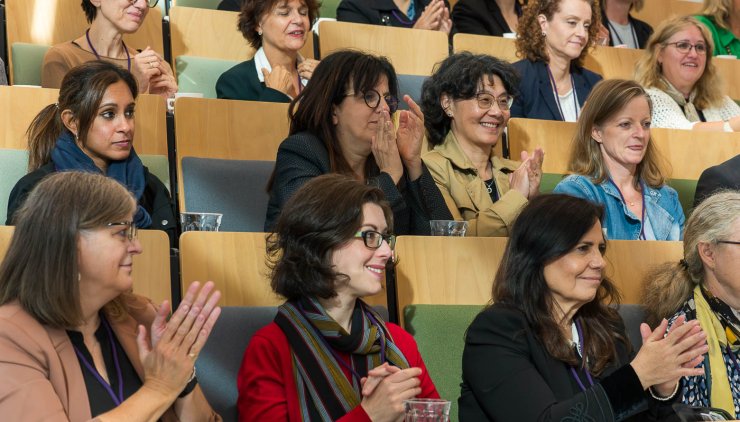-
9 oktober
-
Talentgericht
Foreign partners visit Fontys and are enthusiastic about cooperation

'It was great to meet the students and teachers at Fontys,' a Canadian participant at the event yesterday in Eindhoven responded. Nico van der Aa, Internationalisation coordinator at Fontys Engineering: 'The European Association for International Education will be held in Rotterdam this year, from 26 to 29 September. We connect to that with this interesting partner day for interested parties.
Intercultural competences
One of the focus points in Fontys' strategy is internationalisation. Fontys wants to enable students to gain international experience and intercultural competencies through international exchange programmes to enrich their personal development. Conversely, international students add an extra dimension to our campuses. Fontys will focus more on various forms of internationalisation, such as virtual cooperation and blended programmes. In these, they can work together both online and on location. Fontys also wants to develop education together with partner universities, exchange teachers and staff can also learn from each other.
Region increasingly international
Why does Fontys consider internationalisation so important? Nico: 'When I started at Fontys eight years ago, internationalisation was nice to have. Nowadays, it's a must. At Fontys Engineering, the institute I am attached to, we train students for a job in Brainport region Eindhoven. This region - and perhaps every region - is becoming increasingly international. Fontys wants to prepare students for that internationalisation.
Fontys has exchange programmes with educational institutions on all continents and enables our students to do a minor somewhere around the world and vice versa; we welcome students here with closed exchange.
Nico knows that a minor in the Netherlands can be quite different from a minor abroad. At Fontys, we often work on projects with complex, discipline-transcending assignments. Abroad, education is often still quite traditional, with several separate subjects to choose from. Our students do not find this a problem. Much of what you learn abroad you don't learn in the lecture hall, but by getting to know people from a different culture with different customs.'
Contact with other cultures
To emphasise the importance of internationalisation, all three members of the Executive Board, at varying times, made appearances. Board chairman Joep Houterman opened the day; two students asked him about his own experiences with internationalisation. Houterman turned out to have interned in Rwanda as a Wageningen University student.
'Everyone there greets each other by shaking hands. Not just on first acquaintance but every time they see each other again. When I returned to the Netherlands, I continued to do that, but those around me thought it was weird. I realised: 'If cultures are in contact with each other a lot, you almost automatically adopt things from each other.' The programme on Monday focused on inclusion for a reason. Nico: 'Foreign students should feel welcome at Fontys.'
The foreign guests were surprised by the offerings in the Fontys programme. 'A vibrant programme, showing that your education is aligned with the EU agenda. You tick all the boxes: sustainability, digital learning, responsible citizenship, and inclusion. We were impressed with how you embed the multidisciplinary approach in your education. A partner from France said that everybody was very transparent and also told us about how difficult it is to change things.
